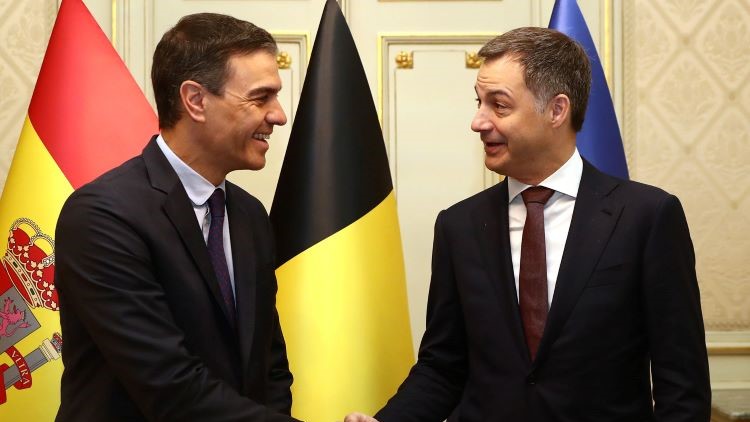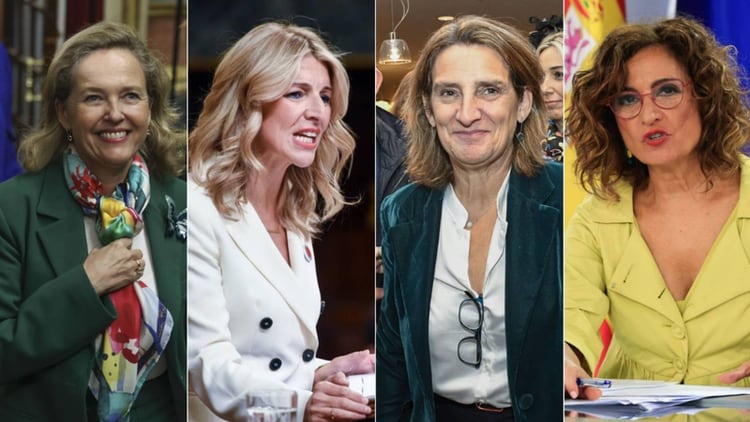Eduardo González
The President of the Government, Pedro Sánchez, will travel next Thursday to Israel and Palestine, where he will be received by the President and Prime Minister of Israel, Isaac Herzog and Benjamin Netanyahu, and by the President of the Palestinian National Authority, Mahmoud Abbas.
According to Moncloa’s official account on the social network X, the talks will focus “on the protection of all civilians, the unconditional and immediate release of the hostages, the access of humanitarian aid to the Gaza Strip and the search for a solution based on two States coexisting in peace and security”.
Sánchez – in what will be his first international trip since his renewal as President of the Government – will be accompanied by the Prime Minister of Belgium, Alexander de Croo. Spain currently holds the rotating Presidency of the Council of the EU and Belgium will begin to do so from January 1, so the aim of the visit of both leaders is to convey the position of the European Union to the leaders of Israel and Palestine, according to the same sources. “We want to actively contribute to de-escalation and a possible political solution from the EU,” De Croo stated through X. “We will hold talks on the humanitarian and political situation in Israel and Palestine,” he added.
Despite holding the EU Presidency, Sanchez has waited more than a month and a half to travel to the area. The Middle East conflict escalated on February 7 following Hamas terrorist attacks against Israel and the subsequent Israeli military response against the Gaza Strip. During this period, the region was visited by several Western leaders, including some of the top leaders of the EU, such as the President of the Commission, Ursula von der Leyen; the President of the European Parliament, Roberta Metsola; or the High Representative for Foreign and Security Policy, Josep Borrell.
Sánchez’s involvement throughout this period -which has been marked in Spain by the negotiations for the investiture of the new government and by the openly critical position of Sumar, minority partner of the coalition, against the Israeli offensive in the Gaza Strip- began on October 20, with his participation in a summit in Egypt between Arab and European governments (and with the absence of the United States and Israel) in which he defended the two-state solution (Israel and Palestine) to overcome the conflict.
Two days later, Pedro Sánchez had a telephone conversation with Netanyahu in which, in addition to condemning “the terrorist attacks by Hamas”, he insisted that Israel has “the right to defend itself within the limits of international and humanitarian law”, and advocated “preventing the conflict from spreading to the rest of the region”, expressed his “deep concern for the protection of all civilians and the need for humanitarian aid to reach the population of Gaza in a sufficient and sustained manner”, defended a “humanitarian cease-fire” and called for “a definitive solution for peace, based on the solution of two States, Israel and Palestine, coexisting in peace and security”.
On October 26, Sánchez spoke at the Brussels European Council, where he formally proposed the holding of an international peace conference for the Middle East “within six months” so that “the entire international community feels involved” in favor of the two-state solution. Finally, the 27 agreed, in their final declaration, to “reactivate a political process based on the two-state solution” and showed “their support for the early holding of an international peace conference”, without further details.
Pedro Sánchez, like most of the speakers from the different parliamentary groups, referred to the Middle East conflict during the recent investiture debate. “International law is not being complied with. We are with Israel in the repulse and response to Hamas, we demand the release of the kidnapped and reject the killing of Palestinians,” he said. “The new government will work in Europe and in Spain to recognize the Palestinian State”, he announced.
During the session, the MPs of Sumar wore on their lapels a pin with the drawing of an open watermelon, symbol of solidarity with the Palestinian resistance, and the second vice-president and leader of Sumar, Yolanda Díaz, asked Sanchez to act more firmly in favor of Palestine. “Mr. Sanchez, we can call the ambassador for consultations, we can also promote the embargo on arms sales to Israel or we can simply defend the sanctions on Israel,” she said.
Albares and Borrell’s tour
On the other hand, the Minister of Foreign Affairs, José Manuel Albares, and the rest of his EU counterparts participated yesterday in an informal Foreign Affairs Council by videoconference convened by Josep Borrell to report on his recent tour of the Middle East, which began last Thursday in Israel and concluded today, Monday, in Jordan, after passing through Palestine, Bahrain, Saudi Arabia and Qatar.
Borrell met during the tour with Isaac Herzog; Israeli Foreign Minister Eli Cohen; and opposition leader Yair Lapid, and visited Kibbutz Be’eri and Re’im, located two kilometers from the Gaza Strip, which was attacked on October 7 by Hamas. Later, he met in Ramallah with the Prime Minister of the Palestinian Authority, Mohammad Shtayyeh.







